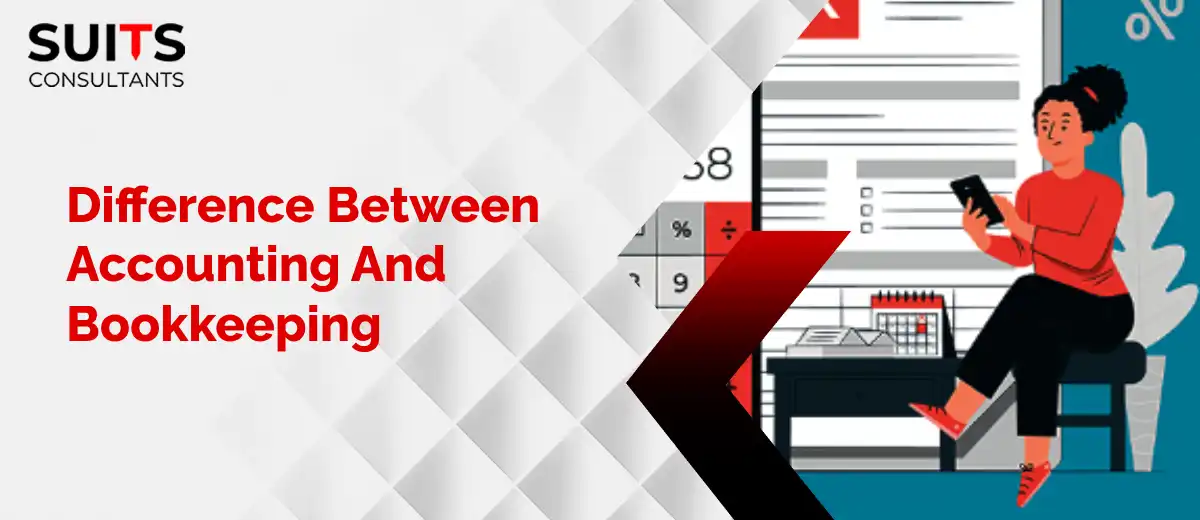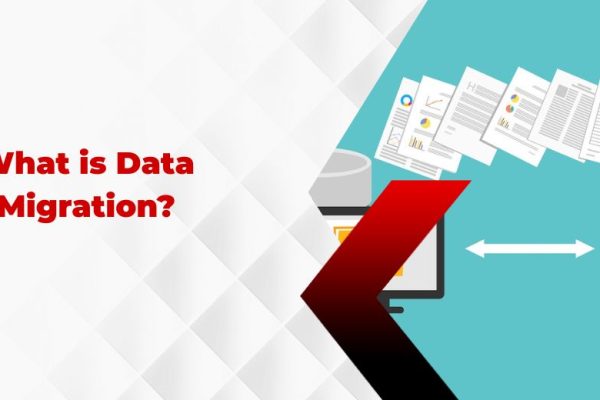The Difference Between Accounting And Bookkeeping
Bookkeeping records financial transactions, while accounting analyzes and interprets them for financial planning. Many business owners confuse the two, assuming they are the same. While both deal with finances, they serve different purposes in managing business records and decision-making.
Understanding the difference is crucial for maintaining accurate financial data, ensuring tax compliance, and making informed business decisions. Choosing the right service can impact cash flow, growth, and overall economic health.
In this guide, I’ll break down the differences between bookkeeping and accounting, covering their roles, key distinctions, and when to use each for a business.
What is Bookkeeping? (The Foundation)
Bookkeeping is the process of systematically recording daily financial transactions like sales, expenses, and payroll. It focuses on accuracy and organization, ensuring businesses maintain clear financial records.
Key Tasks:
- Entering data into ledgers or software (QuickBooks, Xero).
- Managing invoices, receipts, and reconciling bank statements.
- Generating basic financial statements (balance sheets, income statements).
Why It Matters:
Bookkeeping keeps finances organized, ensures tax compliance, and provides the raw data needed for informed business decisions.
What is Accounting? (The Big Picture)
Accounting goes beyond recording transactions—it interprets, analyzes, and summarizes financial data to guide business strategy. It helps businesses understand their financial health and make informed decisions.
Key Tasks:
- Adjusting entries for accruals and deferrals.
- Analyzing profitability, cash flow trends, and overall financial performance.
- Handling tax planning, audits, and regulatory compliance.
Why It Matters:
Accounting turns raw financial data into actionable insights, helping businesses optimize growth, manage risks, and stay compliant.
Key Differences Between Bookkeeping and Accounting
Bookkeeping focuses on recording transactions, while accounting analyzes financial data to support business decisions.
|
Aspect |
Bookkeeping |
Accounting |
|
Focus |
Transactional accuracy, data entry |
Strategic analysis, financial planning |
|
Scope |
Organizing financial records, managing invoices, and reconciliations |
Preparing financial reports, tax strategies, and audits |
|
Output |
Organized records for tax compliance |
Financial forecasts, tax planning, and investment insights |
|
Financial Statements |
Maintains records but doesn’t prepare financial reports |
Prepares income statements, balance sheets, and cash flow reports |
|
Decision Making |
No financial analysis or forecasting |
Advises on budgeting, tax planning, and risk management |
|
Compliance |
Ensures accurate record-keeping |
Ensures regulatory compliance, audits, and tax filings |
|
Tools |
QuickBooks, Xero, spreadsheets |
Advanced software like Sage, ERP systems |
|
Credentials |
Optional certifications (CPB) |
CPA, CMA, or advanced finance degrees |
Narrative Flow:
Bookkeeping is the “what”—it tracks every dollar flowing in and out of a business. Accounting is the “why”—it interprets those numbers to assess financial health and guide decisions. For example, a bookkeeper logs a $10,000 expense, but an accountant determines how it affects cash flow, tax liabilities, and profitability.
The Role of a Bookkeeper vs. an Accountant
Both bookkeepers and accountants play essential roles in managing business finances, but their responsibilities differ significantly.
Bookkeeper’s Responsibilities:
- Recording daily financial transactions.
- Managing accounts payable and receivable.
- Reconciling bank statements to ensure accuracy.
- Maintaining the general ledger and financial records.
Accountant’s Responsibilities:
- Preparing financial statements like income statements and balance sheets.
- Conducting audits and analyzing financial health.
- Handling tax filing, compliance, and strategic tax planning.
- Providing financial advice for business growth and investment decisions.
Who Should You Hire?
- Hire a bookkeeper if you need accurate record-keeping, invoicing, and transaction management for day-to-day financial tasks.
- Hire an accountant if you need financial insights, tax planning, or strategic advice to optimize business growth and compliance.
How They Work Together in the Financial Cycle
Bookkeepers and accountants complement each other, ensuring financial accuracy and strategic decision-making.
- Bookkeeper records transactions → Organizes daily financial data, including sales, expenses, and invoices.
- Accountant reviews data → Makes adjustments for accruals, deferrals, and tax compliance.
- Accountant generates reports → Prepares financial statements, analyzes trends, and advises on tax strategies and business growth.
Real-World Example:
A retail store tracks daily sales and expenses through bookkeeping. The accountant then analyzes these records to identify seasonal cash flow gaps, helping the business plan inventory and budget effectively.
Software: Tools for Each Function
|
Function |
Tools & Features |
|
Bookkeeping Tools |
QuickBooks Online – Transaction logging, bank reconciliation. |
|
FreshBooks – Invoicing, expense tracking, time tracking. |
|
|
Accounting Tools |
Sage Intacct – Financial modeling, budgeting, and forecasting. |
|
NetSuite – Enterprise-level financial management, compliance tracking. |
|
|
Hybrid Solutions |
Bench – Automated bookkeeping with accountant-reviewed financial reports. |
When to Hire: DIY vs. Professional Help
|
Situation |
Best Approach |
|
Freelancers & Solopreneurs |
DIY bookkeeping using software like QuickBooks or FreshBooks. |
|
Growing Businesses & E-commerce |
Hire a bookkeeper to manage increasing transactions and tax prep. |
|
Complex Finances (Investors, Mergers, Tax Strategy) |
Hire an accountant for compliance, financial planning, and reporting. |
Cost Comparison: Bookkeeping vs. Accounting
|
Service |
Average Hourly Rate |
Average Monthly Cost |
Notes |
|
Bookkeeping |
$20–$50 per hour |
$150–$500 per month |
Rates vary based on experience, location, and complexity of tasks. |
|
Accounting |
$150–$400 per hour |
$1,000+ per month |
CPAs may charge higher rates for specialized services or complex financial situations. |
ROI Tip: Outsourcing bookkeeping can save over 10 hours per month, allowing you to focus on revenue-generating activities.
The Evolution of Bookkeeping and Accounting
Traditional vs. Modern Approaches
Bookkeeping started with manual ledgers, making data entry slow and error-prone. In the 1980s, desktop software like QuickBooks improved efficiency but lacked real-time access.
Cloud-based solutions revolutionized accounting, allowing businesses to manage finances remotely and collaborate seamlessly. Now, financial data is accessible anytime, anywhere.
Impact of Automation & AI
AI automates tasks like data entry, bank reconciliation, and invoice processing, reducing manual work and improving accuracy.
Advanced AI tools analyze large datasets, detect anomalies, and predict trends. This shift allows accountants to focus more on strategy and business growth.
FAQs
Do I need both a bookkeeper and an accountant?
While not mandatory, having both ensures accurate records and strategic financial advice.
Do I need an accountant if I use QuickBooks?
QuickBooks manages daily transactions, but an accountant provides essential tax planning and financial analysis.
Can bookkeeping be automated?
Yes, many tasks can be automated with software, though oversight remains important.
How much does bookkeeping vs. accounting cost?
Bookkeepers typically charge $20–$50 per hour; accountants range from $150–$400 per hour.
Is an accountant legally required for a small business?
An accountant isn’t legally required for a small business, but their expertise ensures tax compliance and better financial management.
Conclusion
Bookkeeping organizes financial records, while accounting turns them into strategic insights for growth. Both play crucial roles, with bookkeeping handling daily transactions and accounting focusing on analysis, tax planning, and compliance. The right choice depends on business size and financial needs.
Suits Consultants offers expert bookkeeping and accounting services designed to streamline finances and drive better decisions.






